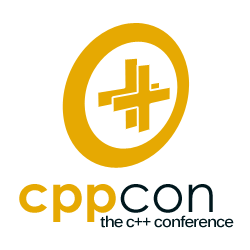Keynotes at Meeting C++ 2019
Announcing the Keynotes of this years Meeting C++ conference
Keynotes at Meeting C++ 2019
by Jens Weller
From the article:
I'd like to give you an overview on this years keynote speakers at Meeting C++ 2019.
March 11-13, Online
March 16-18, Madrid, Spain
March 23-28, Croydon, London, UK
March 30, Kortrijk, Belgium
May 4-8, Aspen, CO, USA
May 4-8, Toronto, Canada
June 8 to 13, Brno, Czechia
June 17-20, Folkestone, UK
September 12-18, Aurora, CO, USA
November 6-8, Berlin, Germany
November 16-21, Búzios, Rio De Janeiro, Brazil
By Meeting C++ | Apr 26, 2019 06:44 AM | Tags: meetingcpp keynotes conference community
Announcing the Keynotes of this years Meeting C++ conference
Keynotes at Meeting C++ 2019
by Jens Weller
From the article:
I'd like to give you an overview on this years keynote speakers at Meeting C++ 2019.
By Adrien Hamelin | Apr 25, 2019 08:38 AM | Tags: community
Another one.
by Ori Ben-Shir
From the article:
I was attending this year ACCU conference, and I am very eager to share my impression of the conference. ACCU is an annual conference located in the lovely city of Bristol. The conference is mostly dedicated to C++ developer. While C++ developers are in mind, the conference is not limited to C++ material, and it includes talks for various topics and even some other programming languages. Yes, there was a Rust talk and even a workshop this year.
It was the first time I have attended a big conference. And I must admit it was a great pleasure! I’m in love with the concept of technical talks. I find it to be the most effective learning method for me. The opportunity to meet a lot of tech enthusiastic is both fun and enriching. Wrapping it all with a vacation for such a lovely city such as Bristol is immensely satisfying. If you have the opportunity, I encourage you to attend this conference next year. I also think the organizers did a great job. I genuinely like the extra social session. The pub quiz, for instance, was perfect, though some of the code samples from it were as far from perfect as possible.I have a lot to say about the content itself. I tend to believe I have more to say than you want to read. So let’s focus on some of the talks I think are more relevant...
By Adrien Hamelin | Apr 25, 2019 08:36 AM | Tags: community
Learn about what happened.
ACCU 2019 trip report
by Mathieu Ropert
From the article:
This year’s edition of ACCU was held from April 10th to April 13th, in Bristol as always. I arrived a day earlier from Paris after a short stop in France which was supposed to offer some supply of good weather and trips to a few winemakers in preparation for the harsh conditions of Great Britain.
From the start things went awry as I could only spare half an hour for a visit to a winemaker in Vouvray who turned out to be quite forgettable, not to mention the weather that was only barely keeping it up together. Still I didn’t immediately notice that something was off, having spent the pasts months enduring the cold winter of Sweden. It took a second flight from Paris to Bristol to realize it: spring is there (although a couple of Bristol locals apologized for the weather being unexpectedly non-terrible)...
By Meeting C++ | Apr 25, 2019 05:09 AM | Tags: performance meetingcpp experimental efficiency community c++20 c++17 c++14 c++11 basics advanced
The call for submissions is open for Meeting C++ 2019!
New speakers are welcome to submit as there is a dedicated track for this, start speaking at Meeting C++!
Submit your talk to Meeting C++ 2019!
by Jens Weller
From the article:
When Meeting C++ 2019 was announced in the begin of April, there was already a hint that you could submit your talks. And so far a few have done so. Now its time for an official news entry. Submit your talk to Meeting C++ 2019! This year its the 8th edition of Meeting C++!
Speaking at Meeting C++ is a fun experience, you get to attend the speakers dinner, attend the full conference for free and enjoy the luxurious Hotelrooms the Andels offers from Wednesday to Saturday! You can look at last years schedule to get a feel for what your competition might talk about, but have in mind that you don't see the talks that were not submitted! If you want to talk about a C++ topic that wasn't covered yet, or have a unique idea for your talk, please submit! Speakers don't need to buy a ticket and the conference has a contingent of rooms available for speakers & staff.
By Adrien Hamelin | Apr 17, 2019 01:01 PM | Tags: community
Will you answer?
CppCon 2019 Call for Submissions
From the article:
CppCon is the annual, week-long face-to-face gathering for the entire C++ community. The conference is organized by the C++ community for the community and so we invite you to present. The conference regular program consists of five days of seven tracks of one hour sessions...
By Jon Kalb | Apr 17, 2019 09:30 AM | Tags: community cfs cfp
 Get with the program!
Get with the program!
CppCon 2019 Call for Submissions is Open
From the article:
Call for Submissions is now open for CppCon 2019 to be held September 15-20, 2019 at the Gaylord Rockies in Aurora, Colorado, USA. The submission deadline is May 20th.
By Adrien Hamelin | Apr 16, 2019 12:03 PM | Tags: community
Book your place early!
Registration for CppCon 2019 is Open
From the article:
Registration is now open for CppCon 2019 to be held September 15-20, 2019 at the Gaylord Rockies in Aurora, Colorado, USA...
By Adrien Hamelin | Apr 15, 2019 10:42 AM | Tags: experimental community
Short and sweet.
Report from the February 2019 ISO C++ meeting (Core Language working group)
by Jason Merrill
From the article:
The February 2019 ISO C++ meeting was held in Kailua-Kona, Hawaii. As usual, Red Hat sent three developers to the meeting: I attended in the Core Language working group, Jonathan Wakely in Library, and Thomas Rodgers in SG1 (parallelism and concurrency). The meeting went smoothly, although there was significant uncertainty at the beginning where we would end up. In the end, Modules and Coroutines were accepted into the C++20 draft, so now we have our work cut out for us nailing down the remaining loose corners. Here ar highlights from the meeting...
By Adrien Hamelin | Apr 15, 2019 10:40 AM | Tags: community
 Are you in the area?
Are you in the area?
Italian C++ Conference 2019
In
The C++ Conference, made in Italy
Saturday June 15, MilanWe are excited to announce the conference keynote speaker
Andrei Alexandrescu
By Adrien Hamelin | Apr 12, 2019 12:21 PM | Tags: community
 A new one!
A new one!
CPPP
by Jonathan Boccara
From the article:
Here is an exciting piece of news for the C++ community: the CPPP conference has been officially announced!